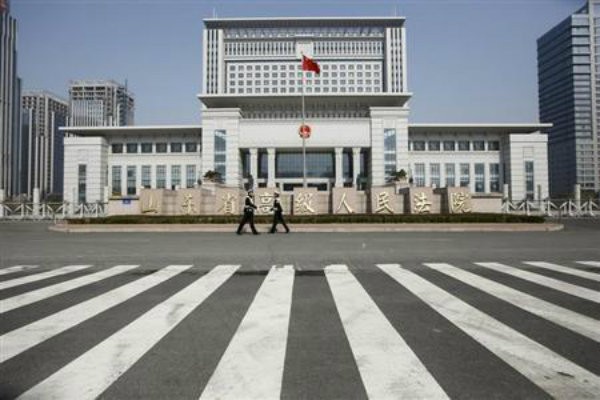A court specializing in processing intellectual property cases will be established in China. The new court, a first in the country, will be opening in Beijing in less than two weeks as a response to criticisms about China's position on IP rights.
Besides the upcoming IP court, there are also others that will be set up by the end of this year. The courts will be processing computer software issues, trademarks and patent cases and will be set up in southern Guangzhou and Shanghai, said China's Supreme Court deputy presiding judge Wang Chuang.
"This will be an important revolution of the country's judicial system to deal with IP-related cases," Wang commented.
Kering, an international firm in France specializing in luxury goods, reported cases of violated intellectual properties by companies in China. China has been, for 25 years, in the Office of the United States Trade Representative's list of nations that have little protection for IP rights.
Wang mentioned that an IP protection research center will be established by the Supreme Court to train experts in technical investigation who will aid judges in settling such cases.
According to Feng Xiaoqing, China University of Political Science and Law professor, the opening of the new courts manifests China's interest in improving the country's global image.
"It might take a long time for the country to fundamentally improve its recognition and enforcement of IP protection," Feng added.
Even before the opening of the courts, China has already been responding to IP-related cases. Provisions against trademark squatting, expanding trademark protection, streamlining appeal methods and trademark applications were already implemented in 2013 by the Chinese government. The country is also making revisions to improve its policies on trade secrets, copyrights and patents.
According to the U.S. trade representative's 2014 report, China lacks laws that protect trade secrets and has unfair policies that put U.S. firms with rights at a disadvantage.
The report also emphasized the growth of fake pharmaceuticals in several countries which include China. and that the country is a top source of the components needed for counterfeit drugs.
In July, Kering sued Alibaba Group, blaming its online shopping sites for allowing the sale of Kering's brands imitations. Kering withdrew the lawsuit in August as the two firms agreed to work on IP protection.



























